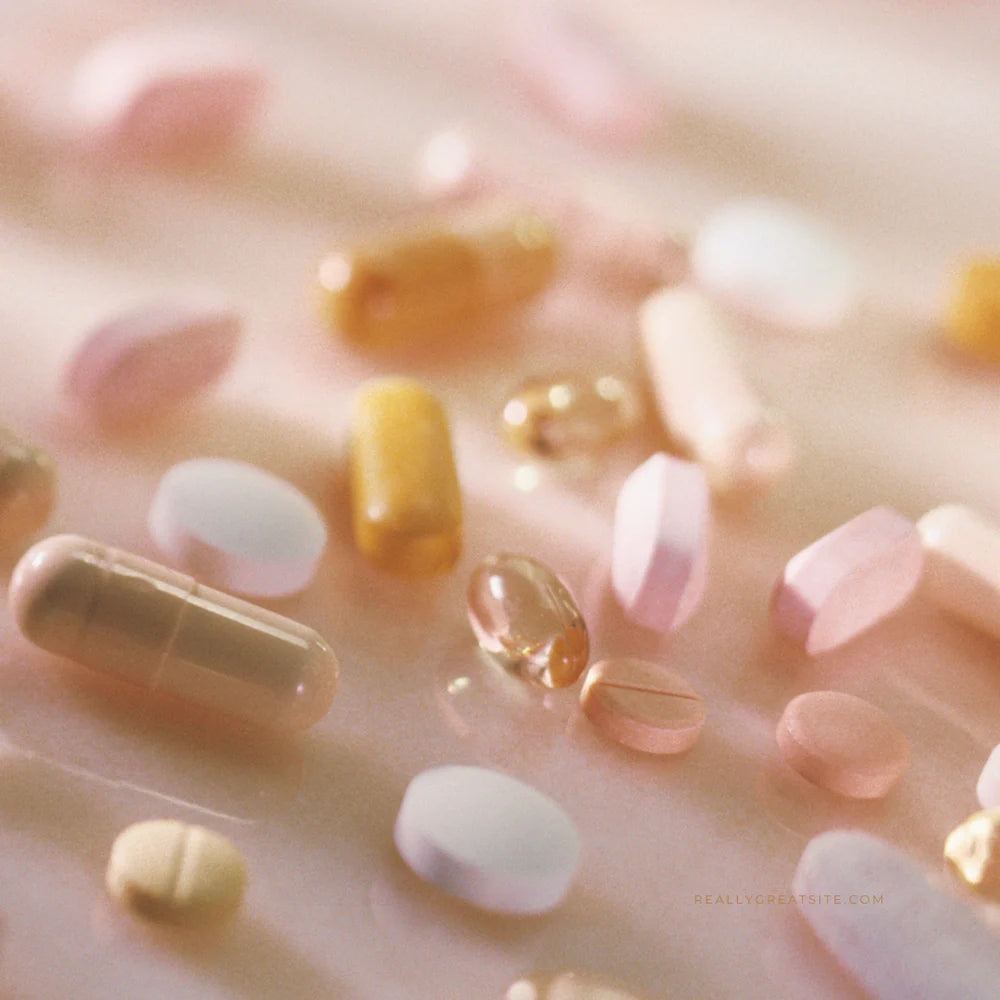Do you want to know what vitamins like K, B and A actually do?
First, it is important to mention what fat-soluble and water-soluble vitamins actually mean. Fat-soluble vitamins are absorbed along with the fats we eat and can be stored in our body fat. Water-soluble vitamins are broken down in the digestive system with water and any excess is excreted in the urine.
Vitamin A
Fat soluble, also known as beta-carotene, retinal, retinol.
What it does: This vitamin plays an essential role in the immune system, development and reproduction, and eye health. Vitamin A also helps the body absorb and use iron from food. Most importantly, vitamin A plays a key role in skin health and, depending on the severity, is also used to treat acne in the form of medications such as isotretinotin (high-dose vitamin A).
Sources for intake: carrots, sweet potatoes, mangos, leafy vegetables, parsley, basil, fish oils, milk, eggs
Vitamin B2
Water soluble, also known as riboflavin.
What it does: This nutrient plays a major role in energy production, cell growth and fat metabolism. Additionally, this vitamin is important for our mucous membranes and promotes healthy skin function.
Sources for intake: Mushrooms (especially shiitake), quinoa, leafy vegetables, beans, lentils, avocado, eggs, chicken breast, dairy products
Vitamin B7
Water soluble, also known as biotin.
What it does: A building block of the proteins that make up your body, biotin is often touted as the vitamin for hair and nails. A deficiency can lead to brittle hair and nails.
Sources for intake: almonds, peanuts, walnuts, sunflower seeds, lentils, beans, peas, sweet potato, bananas, avocado, cauliflower, broccoli, mushrooms, egg yolk, salmon

Vitamin B9
Water soluble, also known as folic acid.
What it does: This vitamin is important for red blood cell development and healthy fetal growth. Folic acid is an essential nutrient for pregnant women. Folic acid intake is also associated with a reduced risk of chronic diseases.
Sources for intake: Spinach, kale, chard, lentils, chickpeas, black beans, kidney beans, asparagus, Brussels sprouts, sunflower seeds, almonds, peanuts, liver, seafood, eggs, MANIA CONCEPT folic acid
Vitamin B12
Water soluble, also known as cyanocobalamin, hydroxocobalamin, methylcobalamin.
What it does: Vitamin B12 is important for red blood cell production, nervous system health and is very important for a functioning immune system. Vitamin B12 can also help you feel more energetic and fitter, as taking vitamin B12 can reduce tiredness and fatigue. However, when you eat a plant-based diet, this nutrient is very difficult for the body to absorb, so if you don't eat these foods very often, it might be worth considering a B12 supplement.
Sources for intake: fortified cereals, eggs, mussels, oysters, dairy products, meat, MANIA CONCEPT Vitamin B12
vitamin C
Water soluble, also known as ascorbic acid.
What it does: A powerful antioxidant, this water-soluble vitamin protects the body from oxidative stress, improves the absorption of iron in plant foods, and supports the production of collagen, which is super important for both skin elasticity and connective tissue health. Taking vitamin C can also protect against UV rays and even reduce the duration and severity of a cold.
Sources for intake: citrus fruits, strawberries, peppers, kale, broccoli, cauliflower, Brussels sprouts, guava, papaya, mango, tomatoes, parsley, thyme, MANIA CONCEPT Vitamin C

Vitamin D3
Fat soluble, also known as cholecalciferol.
What it does: Vitamin D3 is really important for calcium absorption, bone health, fighting inflammation and boosting immune function. However, many people don't get enough of it and for this reason, vitamin D supplements are recommended in most cases. Vitamin D is produced by the body in response to the sun, so it's not surprising that people can be deficient, especially during the winter months or in areas that have more cloudiness year-round.
Sources for intake: fortified plant milk, mushrooms, egg yolk, trout, salmon, tuna and mackerel, MANIA CONCEPT Vitamin D3+K2
Vitamin K2
Fat soluble, also known as menaquinone.
What it does: Like vitamin K1, K2 is also important for bone health. Vitamin K2 specifically supports calcium absorption and also contributes to normal blood clotting.
Sources for intake: fermented foods such as natto, sauerkraut and miso, fruits, vegetables, MANIA CONCEPT Vitamin D3+K2







Leave a comment
This site is protected by hCaptcha and the hCaptcha Privacy Policy and Terms of Service apply.